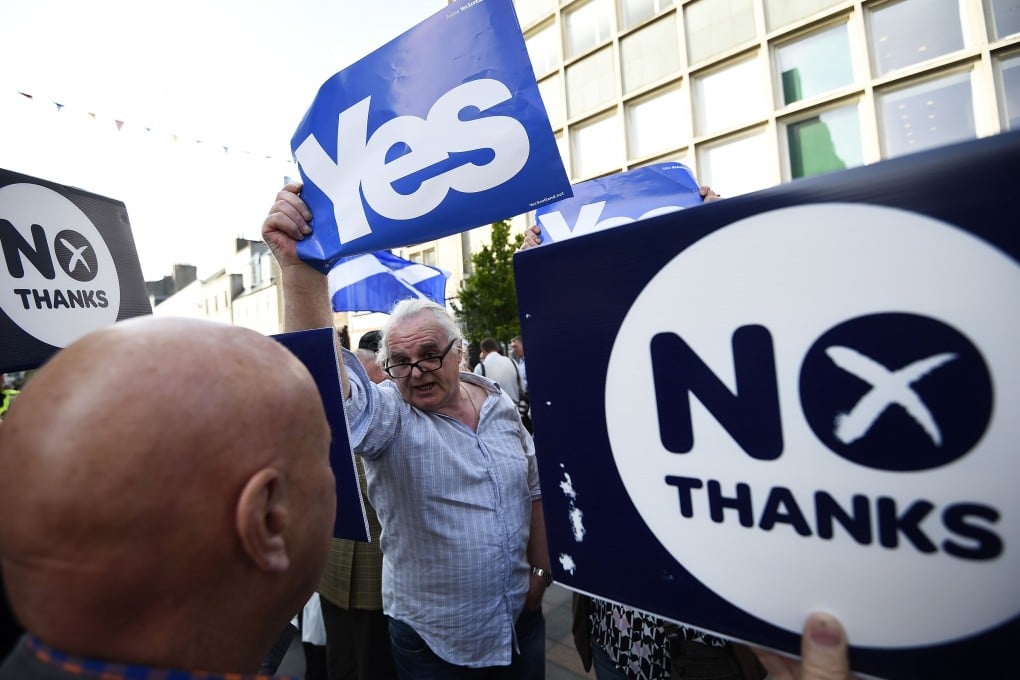Off Centre | If Scotland 'could' make it on her own, what about Hong Kong?

Be that as it may (and, look, it’s a hard task making “No” sound positive), many of those same politicians – including British Prime Minister David Cameron – were frequently heard conceding that “of course Scotland could make it on her own” if she opted to.
Beyond population size, Scotland and Hong Kong aren’t closely comparable. What’s more, the idea of independence remains a somewhat specialised interest in Hong Kong in a way that it is no longer in Scotland.
But still, try to imagine, just for a moment, the words “of course Hong Kong could make it on her own” sally from the mouth of any mainstream Hong Kong politician, pro-establishment or pan-democrat, let alone from the country’s actual head of government. Cannot? Fair enough. At times, that little word seems to wear well as the SAR’s unofficial motto.
It’s hard to say which goes first: aversion to the question or pessimism about the outlook for Hong Kong if it could somehow reject the first bit of “one country, two systems”. Equally hard is to discern whether those fears are more or less potent than the ones attendant on Hong Kong’s de facto assimilation into mainland China.
Whatever, it’s not a discussion that is generally had without the shutters coming down. Without “preferential treatment” from the mainland, goes the coup de grâce, Hong Kong would cease to benefit from its rise. Food supplies, water, energy, employment: all would be at risk.
